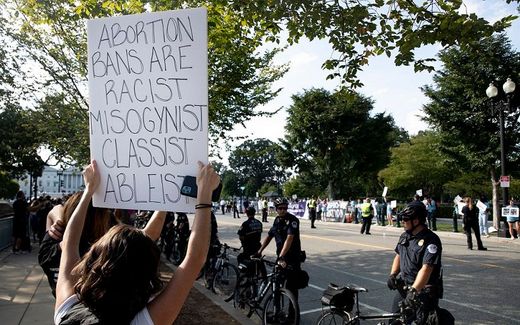Dutch pro-life insurance forced to cover abortion
07-09-2022
Western Europe
Jakko Gunst, RD

The Dutch pro-life insurance is part of the big company Zilveren Kruis. Photo ANP, Lex van Lieshout
Western Europe
From January 1, 2023, the Dutch Pro-Life Insurance stops with the so-called "clean basic insurance". Director Jos Leijenhorst: "You cannot close your eyes for the controversy that arises."
The Pro-Life Insurance website does not cover medical procedures to end a life. That includes abortion in a hospital (except when the mother's life is endangered) and euthanasia. Also, hormone treatments and gender reassigning surgeries are excluded from the Pro-Life basic insurance.
Till January 1, Pro-Life will keep this position. But after that, it has to change its course. From then on, the Christian insurance company, which operates under the umbrella of the secular Dutch insurance Zilveren Kruis (Silver Cross), will offer a standard insurance like all the others in the sector. Including the coverage of euthanasia and diverse forms of anti-conception.
Social media campaign
Leijenhorst is honest: the change hurts. "The helmsmen started a smear campaign against us last year in November. They were successful and escalated the issue."
He partly refers to the many critical (parliamentary) questions asked by the Dutch liberal party GroenLinks about the Pro-Life insurance. However, he stresses, even more, the role of the registered controversy on social media which followed. Twitter users roared: "It is a shame that young people who are insured with their parents via the Pro-Life insurance do not have access to pills that cause abortions or to good transgender care."

Many conversations followed, with the Silver Cross and the Pro-Life advisory organ, among others. The ever-returning question: "What is the best for us?" Leijenhorst says.
"We must see that it is impossible to guarantee basic insurance that is 100 per cent clean. Clean means that you do not pay for controversial medical interventions by choosing our insurance. The system in place since 2006 simply does not allow it, if only because all insured parties pay half of the premium via taxes. Of course, we remained distinctive in a certain way, but that also led to more and more discussion among our supporters. Plus, all those attacks from outside distracted from the story that we want to spread permanently. Namely, that we believe it is God Who gives and takes life, that we consider life worthy of protection from beginning to end and that we want to stand firm for access to good, Christian care."
Accent
In the new course that he outlined with Silver Cross, the emphasis shifts "from what Pro-Life does not reimburse to what the Christian health insurer can mean for policyholders." For customers who get stuck with questions about the end of life, their sexual identity or their unfulfilled desire for children, there will be more opportunities to talk to a confidential Christian doctor, Leijenhorst explains. Pro-Life will also invest in more information on the ethical pros and cons of new treatment methods. It is still being investigated whether the insurer can contribute via a fund to, for example, research into embryo-saving fertility treatments.
Leijenhorst does not yet dare to anticipate how the message will fall on the supporters. "Now I am cancelling immediately", an insured said to me on Monday. "I replied: 'I respect your choice, but that's the best present you can give to those who have waged this smear campaign against ProLife'."
Whether the name ProLife will remain, Leijenhorst is not yet sure. "We will consider whether it still helps us in these times."
Double feelings
The Pro-Life Advisory Board is left with mixed feelings, says chairman and spokesman Prof. Henk Jochemsen. He says that the pressure to cancel the policy came largely from several large clients of Zilveren Kruis. "They even threatened to cancel the collective health insurance of their employees."
Why the venom, the medical ethicist wonders. "Where is the room for a strong and vital civil society if an insurer of Christian persuasion is excluded under the guise of diversity?" He has respect for how parent company Achmea has guided the decision-making process. "The organisation did not take any chances. In the end, they indicated that they wanted to keep a Christian insurer afloat, which may strengthen the identity-related character of healthcare in parts. I can understand that motivation. However, I speak for all members when I say that the council regrets this outcome."
The advisory council's main intention is to monitor whether the extra investments Pro-Life is allowed to make in the quality and identity of care are noticeable in practice, Jochemsen said.
“Extremely sad”
Reactions from the Christian community in the Netherlands speak about disappointment. Diederik van Dijk, director of the NPV (Dutch Patient Association) says this decision is “extremely sad.” “Widely in society you hear a call for room for diversity, but standing for life, for Christian values and norms apparently does not fall under that. This is seen as discrimination and exclusion. A very worrying development.”
This article was translated by CNE.news and published earlier by the Dutch daily Reformatorisch Dagblad
Related Articles





